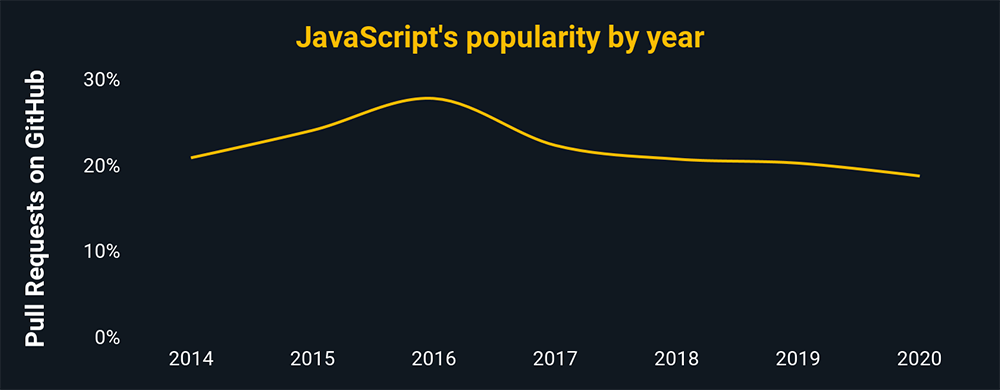Are Coding Bootcamps Worth It? Everything You Should Know

Code bootcamps are intense, immersive programs that teach people to become web developers, data scientists, and more. We look at the benefits of attending one.
Key takeaways:
-
Coding bootcamps are a good option for people who want to switch careers
-
They’re a cheaper and faster option than getting another degree, but it’s a different type of education
-
Bootcamps teach you a practical curriculum, whereas colleges are more holistic and philosophical
-
Understand what is important to you and pick a bootcamp based on that
-
Grads from leading bootcamps graduate, get jobs, and get paid good salaries
-
When choosing a bootcamp, always research their outcomes and average salaries
What is a coding bootcamp?
A coding bootcamp is one of the fastest ways to learn to code. These are intensive training programs related to mobile development, web development, and programming languages.
These programs are designed for people who want to get started in tech and want to build apps and websites. They also differ from postsecondary programs because bootcamps are like accelerated education programs.
Coding bootcamps are gaining popularity among software engineers due to the rise in demand for coding in the tech industry. In addition, more startups require a software developer. Since coding bootcamps actively focus on various aspects of coding, students can highly benefit from these courses.
So if you’re looking to jumpstart your career in the tech industry, you should consider a coding bootcamp. Coding bootcamp programs like Flatiron School will help you start your career in software engineering without the high cost of the tuition that comes along with a four-year degree.
What do you learn in a coding bootcamp?
Coding bootcamps are an excellent way for total beginners to learn the coding skills to get a tech job. There are hundreds of programming languages that help you accomplish various tasks. Every language plays a crucial role in developing software programs, websites, games, mobile applications, and more.
It may take ages for you to perfect every coding language. However, if you want to start working in web development and data analysis quickly, HTML, CSS, JavaScript, and SQL will be your primary focus. But you will still need some command over all-purpose languages like C, as well.
Coding bootcamps help you become a full-stack web developer by teaching you the following languages:
- JavaScript
- Ruby
- Rails
- React
- CSS
- HTML
Front End Development
Most people new to coding will begin with front end development. The “front end” refers to everything that is shown and can be seen, from the styling to the animation. If we were to compare front end development to renovating a house, it would be in the realm of interior design.
The reason why front end development is an easier discipline for beginners is that it’s very visual and not as technical as other disciplines. Front end coders typically write in HTML, CSS, and JavaScript for web applications. JavaScript is the single most popular language in the world — it’s used on over 95% of websites worldwide — which is another reason why starting with front end development is a great way to pursue other paths, too.
-
The average annual salary for a Front End dev is $92,783 on Glassdoor. On Indeed, that average is $108,303.
-
Average salaries for junior Front End devs are lower — $60,425 on Indeed and $79,511 on Glassdoor.
-
Senior Front End devs earn an average of $120,000, according to Glassdoor.

The chart above shows the relative popularity based on how many GitHub pulls are made per year for that language. This chart and all the charts below are based on data from GitHut 2.0, created by littleark.
Back End Development
The “back end” refers to the site that you cannot see or directly interact with as a regular user or web visitor. This is the part that is responsible for function and making specific operations run smoothly, efficiently, and reliably. Taking the same home renovation example, the backend would be something like the electrical wiring that keeps everything running.
Back end development often requires work in Ruby, Python, PHP, and sometimes C/C++ or Java. These languages are designed to run complex requests and commands on the server side. There’s a little bit more logic and quantitative thinking involved in back end programming.
When comparing front end to back end, picture front end devs creating the face of a website, and back end devs bringing it to life.
Full Stack Development
If you’ve been following along, you could probably guess that full stack development covers the entire spectrum of web/app development. In other words, this is both front end and back end development, combined. Most professionals who label themselves full stack developers will specialize in one or two languages but are familiar with many more than that.
Full stack developers are well rounded and considered the “jack of all trades” in the software world. They are also specialized individuals who can spot when the front end and back end of a website or app aren’t communicating correctly.
What are the benefits of coding bootcamps?
One of the many benefits of a coding bootcamp is that it offers intensive technical programs specially designed to help students make their mark in their tech careers.
These training programs are hyper-accelerated compared to other traditional college programs. As a result, students need not spend four years on computer science degrees to build a career as a software developer.
For example, students can choose a 15-week software engineering course or a more flexible pace program that can be completed in 20, 40, or 60 weeks.
Pros of coding bootcamps
- Coding bootcamps are more affordable than colleges.
- They are accelerated programs, so coding bootcamp graduates can complete their education sooner.
- Coding bootcamp grads have applicable skills.
- Bootcamp grads can connect with other developers.
- Coding bootcamps offer programs that teach industry-specific disciplines.
- Bootcamps offer specific knowledge of the tech industry that students require to get jobs.
- Some coding bootcamps include career coaching during your job search. For example, Flatiron School offers up to 180 days of 1-on-1 career coaching to its graduates.
Cons of coding bootcamps
-
High cost upfront, at once
-
Intense, long hours, for a few months
-
Lack of access to federal financial aid
-
Less philosophical background than computer science degree programs
-
Less depth than traditional college students
-
Can be extremely fast-paced
-
There are still a few HR managers who require or at least expect a computer science degree
What are the requirements for a bootcamp?
You don’t need a degree or college experience to apply to a coding bootcamp. In fact, coding bootcamps are often created specifically for total beginners without previous experience and cover programming languages intensively.
It can certainly be helpful if you have previous coding experience, though, since it gives you a head start on the coding courses. However, you don’t need an educational or work background.
How much do coding bootcamps cost?
We discussed earlier that coding bootcamps are generally more cost-efficient than traditional colleges. However, various coding bootcamps have different paces. Thus, costs differ, depending on the bootcamp.
More comprehensive courses can cost up to $30,000. The average cost of a coding bootcamp is around $14,000.
Some of the bootcamps offer financial aid to learners. You can also apply for a scholarship. For example, Flatiron School offers scholarships based on your financial status, background, etc.
With these various payment plans and student loans, you can easily find a coding bootcamp that fits your budget.
Will a coding bootcamp get you a job?
Fortunately, many employers are looking for bootcamp grads, as they believe that these students have the same skills as college graduates. In a survey, 72% of employers said they think bootcamp grads are ” prepared and likely to be high performers,” while 12% of employers said that bootcamp grads are ” more prepared and more likely to be high performers.”
Besides this, a 2020 survey by HackerRank Developer revealed that 32% of hiring managers had hired bootcamp graduates, believing that they were well-equipped for the job.
With the advent of technology and newer innovations, there has been a significant rise in the demand for coders. Since coding isn’t going to be an outdated career any time soon, you’re sure to open yourself to many opportunities once you polish your coding skills.
Tech jobs are among the most stable and sought-after jobs in today’s economy. Digital designers and web developers are expected to grow another 8% by 2029, while software development jobs are expected to grow by 22%, according to the Bureau of Labor Statistics (BLS).
Do coding bootcamp graduates get hired?
When you research coding bootcamps, you need to have transparent information on the job outcome of the school. You should also be aware of the average salary that a graduate receives.
86%* of Flatiron School bootcamp graduates in 2019 got a job within a noted timeframe, with a standard salary of an entry-level software developer or data scientist.
**for job-seeking on-campus and online graduates included in the 2020 Jobs Report including full-time salaried roles, full-time contract, internship, apprenticeship, and freelance roles, and part-time roles during the reporting period (see full Jobs Report here).
When you’re deciding on bootcamp, be sure to look at their jobs report, since each school may have different reporting criteria. For example, some bootcamps report a job placement within three months of graduation, while others report a job placement in about 12 months.
This is why it’s essential to compare the outcomes, such as the placement rate of different bootcamps. You can read below to learn how to choose a coding bootcamp for yourself.
Which tech companies are hiring bootcamp graduates?
Some excellent software development companies hire bootcamp graduates. These companies look for eligible graduates who have the polished skills coding needs.
Coding bootcamp alumni mostly meet the needs of employers who look for value, time commitment, competency, and drive.
Whether you’re a backend developer or a front-end developer looking for part-time or full-time jobs after graduating from a coding bootcamp, you’ll find opportunities in software development companies.
Bootcamp graduates have also found employment in well-known companies, such as LinkedIn, Amazon, Google, Facebook, etc.
Here are some companies that have hired Flatiron School graduates:
- The Home Depot
- Upserve
- Microsoft
- Mailchimp
- Slack
- Spotify
- Salesforce
How do you choose a coding bootcamp?
One of the key factors you need to consider when choosing a bootcamp is the programming languages you need to learn. There are multiple programming languages, but you should focus on the ones you need for software engineering.
You can also opt for a bootcamp that teaches all-purpose languages. According to a Flatiron School graduate survey, some of the most common languages are these.
- Git Commands
- Object Relational Mapping & SQL
- HTML & CSS
- JavaScript
- Ruby
- React
- Rack
- Rails
Once you know the programming language you want to learn, you can research which bootcamp offers that language. Reputable bootcamps like Flatiron School will list the languages in their syllabus.
How much time can you dedicate to your class?
Another factor that plays a vital role in deciding on a bootcamp of your choice is your schedule. Since bootcamps offer short programs, you can choose the program length that works best for your schedule — there are both full-time and flexible pace options available.
Preferred style of learning
It will help to keep your learning style in mind when choosing a bootcamp. For example, if you’re more comfortable with individual learning, online lectures may work best for you.
You should look for a school that caters to your preferred learning style, so you can get the most out of it.
Bootcamps may fail to replicate the depth of undergraduate programs, but they offer flexibility to students who want to learn how to code. They also cater to the diverse needs of a growing tech industry by bringing in many new eligible coders. If you want to dive into the coding world quickly, or if you just don’t have the time to invest in a full-length college degree, coding bootcamps are a great option to consider.
How do bootcamps compare to colleges?
The cost of bootcamps vs. the cost of college
Looking at how bootcamp costs compare to college costs, let’s first focus on the growing costs and tuitions of college nationwide.
According to the National Center for Education Statistics — in constant 2017-18 dollars — the average fees for a private 4-year undergraduate student more than doubled, climbing from $21,042 in 1995 to $43,139 in 2018. For public 4-year undergrads, it jumped from $8,798 to $20,050. Here’s a closer look at those college fees based on the data from the NCES.
With these skyrocketing tuition fees, it’s no surprise student loan debt has also skyrocketed. Over 42.9 million student loan borrowers nationwide collectively owe $1.44 trillion in federal financial aid (though the current administration is looking to reduce those numbers ???). For private student loans, that debt is a reported $119.3 billion.
In other words, college can be expensive — strikingly expensive. Bootcamps, though still not cheap, are more affordable.
For a quick comparison: The average coding bootcamp tuition is around $13,584, according to Course Report, though some, including Flatiron School’s, are higher than that. This is no price tag to scoff at but is much more cost-effective than the average college degree — especially given how quickly bootcamp grads can get salary returns after getting hired.
We’ll dive deeper into this later.
Comparing bootcamp education vs. college education
For traditional computer science degrees, most colleges design programs meant to be completed over 2 to 4 years. The curriculum requires a series of courses that focus on theory, philosophy, and even complementary skills like higher-level mathematics or statistics.
In general, a degree in computer science should prepare you for most disciplines within the field, from full-stack web development to front end and back end development to countless programming languages and skills.
College takes a holistic, well-rounded approach and is designed to give a philosophical understanding of the subject. It is education delivered in a traditional environment at a moderate pace that is (arguably) easy to keep up with. However, it’s worth noting that degree programs don’t change or evolve quite as quickly as the job market’s demand might need.

Bootcamps, on the other hand, are well-positioned to match the ongoing needs of the market and prospective employers. This is one of the major differences between colleges and bootcamps. It’s could also be why so many colleges and bootcamps partner up on specific offerings.
In fact, some bootcamps work directly with advisory boards to ensure their curriculum is up to date. The “tech landscape” changes rapidly as innovation and new developments are introduced. Hard skills and coding languages that were job requirements a couple of years ago could be obsolete or outdated today.
These boards are comprised of executives from hiring companies and education heads, and they meet specifically to make sure a bootcamp is teaching what prospective workers need to know.
If you eventually decide to go down the coding bootcamp route, be aware of the modernity of that bootcamp’s curriculum. Are they teaching popular languages and processes? Do their instructors have recent industry experience? Why are they teaching the curriculum that they teach?
If you’re not convinced a curriculum is up to date, look elsewhere, because there are many bootcamps that innovate and evolve their curricula regularly. An in-demand curriculum on its own can be enough to make a coding bootcamp worth it.

So, are coding bootcamps worth it?
Coding bootcamps offer a lot of things. They offer an opportunity to learn the skills you need to launch a career at a relatively affordable and fast pace.
What’s required of you is to find the right bootcamp. Find a place that teaches in a way that fits your learning style, meets your price point and schedule, and focuses on the languages and skills that align with your career ambitions. If you do your research and find the right place for you, then attending the right bootcamp is definitely the right choice.
In sum, if your goal is to learn software engineering skills and to start a coding career, then the answer is an unequivocal ‘yes’ — good bootcamps are worth it.
If you’re ready to pursue a new future, apply now or try a free lesson.
to see if you Flatiron School offers our flagship on-campus Software Engineering program as well as our Online Software Engineering program.
Disclaimer: The information in this blog is current as of February 9, 2022. Current policies, offerings, procedures, and programs may differ.



